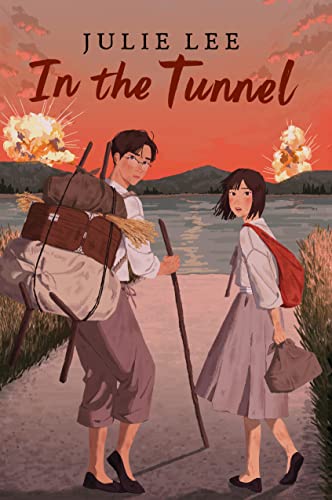In the Tunnel
In The Tunnel is set in North Korea after the Japanese liberation in 1945 and at the onset of the conflict between North and South Korea. Myung-gi is a child in North Korea, whose father participates in small acts of resistance, including smuggling books for his children. Discovered by the secret police, Ahpa is captured, while the rest of the family flees to South Korea. Myung-gi decides to join the army, hoping to find his father up north. But he ends up trapped in a collapsed tunnel with a wall separating him from a North Army soldier trapped on the other side.
An important, but understated, theme of the novel is the presence of contraband books. It is the books smuggled by his father that help expand Myung-gi’s horizons, and it is the same smuggled books that bring the secret police and the need to flee south. Finally, as we see in the epilogue, Myung-gi is able to create a new life in America, while his father remains in North Korea. Spirit broken by decades of authoritarian rule, Ahpa still risks the safety of his new family to smuggle in another book—this one written by Myung-gi. Through it, he learns of the lives of his former family, and reminisces about the enormous cost it all took.
In the Tunnel, Lee’s second novel, continues her exploration of civilian lived experiences of the Korean War. The truly bittersweet ending encapsulates the pain of separation caused by the Forgotten War. Through flashbacks, we feel the fear and desperation of the moment, interspersed with regret over the past and hope for the future. The love for our children, the respect for our parents, and the overwhelming desire to create meaning out of our lives are powerfully on display in these pages.










